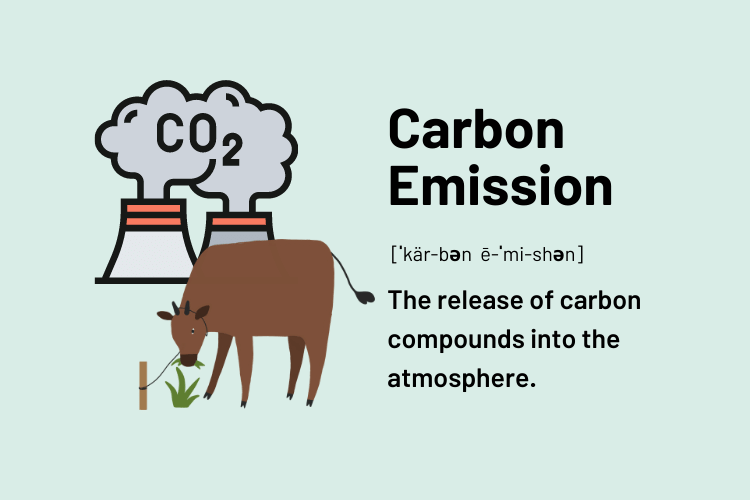
What is carbon emission?
Carbon emission is the release of carbon compounds into the atmosphere. To talk about carbon emissions is simply to talk of greenhouse gas emissions, the main contributors to climate change. Since greenhouse gas emissions are often calculated as carbon dioxide equivalents, they are often referred to as “carbon emissions” when discussing global warming or the greenhouse effect. Since the industrial revolution, the burning of fossil fuels has increased, which directly correlates to the increase of carbon dioxide levels in our atmosphere and, thus, the rapid increase of global warming.
Frequently asked questions (FAQs)
What are carbon emissions?
Carbon emissions are the release of carbon compounds such as carbon dioxide (CO2) and methane (CH4) into the atmosphere. Similarly to other greenhouse gases, these carbon compounds trap heat in the atmosphere when released, resulting in global warming.
What is the main cause of carbon emissions?
The main human-caused (anthropogenic) source of carbon dioxide (CO2) emissions is the burning of fossil fuels, while the largest source of methane (CH4) emissions is agriculture. CH4 accounts for 20% of global emissions and is 25+ times as harmful as CO2 due to its greater heat-trapping ability.
